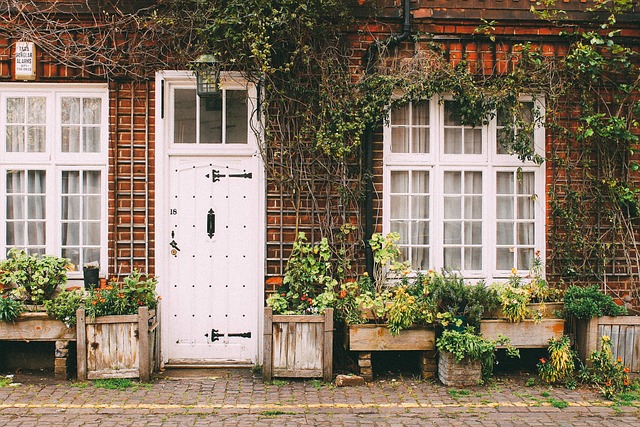Obtaining necessary permits and licenses is crucial for DIY renovations to avoid legal issues, structural problems, budget overruns, and hiring unlicensed contractors. Common home improvement mistakes include overlooking permits, leading to regulatory delays, fines, and project setbacks. Verifying credentials and local permits ensures safe, compliant work and prevents future complications during home sales.
Renovating your home can be an exciting yet daunting endeavor. Among the many challenges, some of the most critical—yet often overlooked—aspects involve permits, licenses, and meticulous planning. This article guides you through the traps many DIY enthusiasts fall into, from the legal perils of skipping permits to the dangers of hiring unlicensed contractors. We’ll also shed light on common measurement mistakes and offer strategies to avoid budget overruns, ensuring your home improvement journey is smoother and safer.
Skipping Permits and Licenses: A Legal Pitfall
Neglecting to obtain the necessary permits and licenses for a renovation project is one of the most common yet serious mistakes homeowners make. While many do-it-yourself (DIY) enthusiasts believe they can skip this step to save time and money, it often leads to legal issues and costly consequences. Each jurisdiction has specific regulations in place to ensure safety, protect property values, and maintain order in residential areas. By ignoring these rules, you risk facing penalties, fines, or even the potential for your renovation work to be deemed illegal and ordered to be removed.
Skipping permits can also lead to problems when selling a home later on. A buyer’s agent or an appraiser might discover outstanding permit violations during an inspection, which could negatively impact the property’s value. Moreover, hiring unlicensed contractors who don’t follow building codes can result in structural issues and unsafe living conditions. It’s crucial to prioritize proper planning and obtain the required permits before starting any renovation project, ensuring a smooth process and avoiding potential pitfalls like budget overruns caused by unforeseen legal requirements.
– Understanding the importance of permits
When embarking on a home improvement or DIY renovation project, one often focuses on the excitement of transforming spaces and the potential for increased property value. However, amidst this enthusiasm, it’s easy to overlook crucial aspects like obtaining the necessary permits. Skipping this step can lead to significant headaches down the line, becoming one of the most common renovation oversights. Permits ensure that your project adheres to local building codes and safety standards, preventing structural issues or even legal consequences. They also facilitate smoother construction, as licensed professionals understand the regulatory framework, minimizing the risk of budget overruns due to unforeseen compliance challenges.
Neglecting permits often results in what many refer to as home project planning errors. This can include hiring unlicensed contractors, which may compromise the quality of work and leave you vulnerable to legal issues. Additionally, measurement mistakes in DIY projects without proper permits can lead to regulatory non-compliance, causing delays and costly corrections. Remodeling pits falls like these can be avoided by understanding local regulations and seeking professional guidance when necessary. This proactive approach ensures a smoother renovation journey, a safer home, and peace of mind.
– Types of permits required for renovations
When tackling a DIY renovation or a home improvement project, it’s easy to get caught up in the excitement and overlook the important paperwork involved. Skipping permits is one of the most common renovation oversights that can lead to significant headaches down the line. Depending on your location and the scope of the work, various permits may be required, including building, electrical, plumbing, or zoning permits. Failure to obtain these could result in hefty fines or even a halt to your project.
Budget overruns are another frequent issue related to reno mistakes, often stemming from initial planning errors. Poor measurement and design miscalculations can lead to costly material wastage and unexpected expenses. Additionally, hiring unlicensed contractors or not ensuring proper licensing for specialized work is a risky move that may compromise the safety of your project and leave you vulnerable to legal issues. Always verify a contractor’s credentials and local permits before starting any significant renovation.
– Consequences of working without necessary documents
When tackling a DIY renovation or home improvement project, it’s easy to get caught up in the excitement and overlook crucial aspects like permits and regulations. Skipping this step can lead to severe consequences, including hefty fines, project delays, and even legal issues. Many homeowners make the mistake of assuming that small-scale projects don’t require permits, but local building codes and regulations vary widely, and what’s exempt in one area might not be in another.
One of the most common DIY renovation errors is starting a project without obtaining the necessary documents. This can result in budget overruns as you may have to redo work that doesn’t comply with regulations or face the cost of fixes required by building inspectors. Additionally, hiring unlicensed contractors who don’t follow proper procedures can lead to subpar workmanship and further complications down the line. Measurement mistakes during DIY projects are another pitfall; incorrect dimensions can impact material costs and project outcomes, leading to wasted resources and potential safety hazards.
Neglecting permits and regulations during renovations can lead to significant legal and financial pitfalls, including budget overruns, delays, and even the possibility of having to tear out work that doesn’t comply with codes. Skipping necessary steps like obtaining permits and hiring licensed professionals is among the most common DIY renovation errors, often resulting in costly mistakes. As you plan your next home improvement project, remember that proper research, attention to detail, and adherence to local regulations are key to avoiding these remodeling pitfalls.
